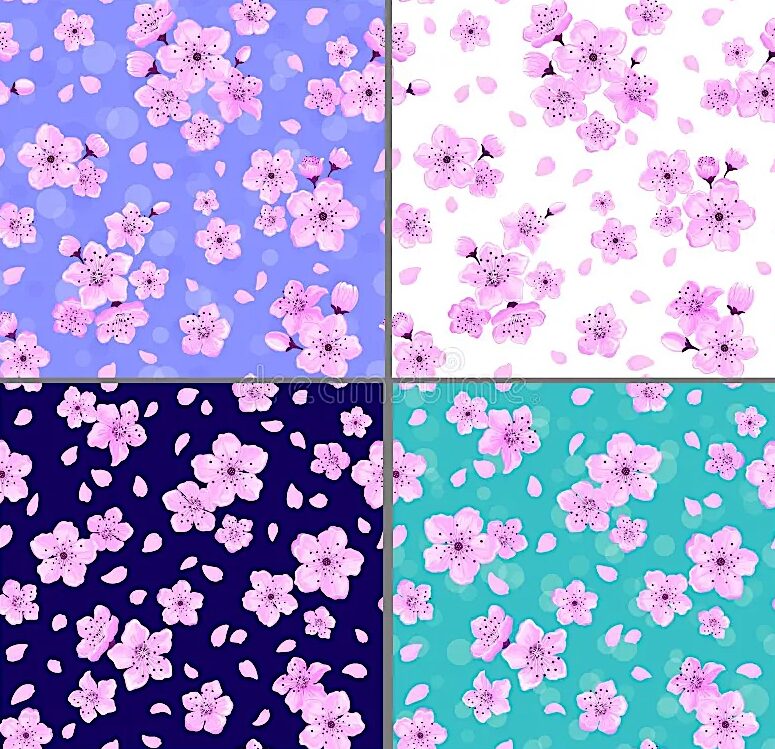Every country has its rites of passage. In Japan, for the unlucky rookie office worker, it is not navigating Excel or surviving a nomikai with the sales team. No. It is claiming the best cherry blossom viewing spot for the company hanami party, armed with nothing but a blue tarp, an early alarm, and an iron will.
Taro, fresh out of university and still calling his senpai “sir” by accident, had been entrusted with this sacred mission. His boss said it like a joke,“You’re in charge of our hanami spot this year! Don’t let us down!”, but the unblinking stare afterward suggested failure would not be taken lightly.
What many outsiders don’t realize is that securing a hanami location in a public park is not a peaceful activity. It is war. Quiet, civil, passive-aggressive war. By 4 a.m., the battlefield was already alive with movement. Blue tarps unfurled like samurai banners. Smoke from convenience store coffee drifted through the misty pre-dawn chill. And then came the rivals.
First was Mari, a junior consultant with a sports watch, ultra-light tarp, and terrifying cardiovascular endurance. She believed that speed and timing were everything. She could sense peak bloom like a hawk reading air pressure. Legend had it she once slept in a tree for two nights to get her team the perfect view.
Then came Daichi, a tech intern with a passion for automation. His setup involved drones, GPS mapping, and a livestream back to his team’s Slack channel. He moved like a reconnaissance agent, scanning for gaps in tarp coverage. Rumor said he once hacked a nearby team’s Bluetooth speaker to play loud enka and drive them off.
Third was Ayaka, who worked in HR and weaponized human kindness. She wore soft sweaters and carried home-baked matcha cookies. She would smile, greet everyone, and slowly, invisibly, expand her group’s territory with compliments and careful layering of picnic baskets. Entire start-ups had surrendered tarp space to her without realizing it.
And then there was Taro. No speed. No gadgets. No cookies. Just an overstuffed backpack, a crumpled company tarp, and vague instructions from his boss: “Find a tree that says something.”
By 6:00 a.m., the prime spots were taken. By 7:00, tensions were high. At 8:30, it rained.
What began as mist became a soft, relentless drizzle. Blue tarps puddled. Bento boxes soaked. Daichi’s drone short-circuited and fell into a tree. Mari slipped on a wet patch and tore her windbreaker. Ayaka’s cookies grew soggy and sad. Taro, for his part, remained under the tree he’d chosen at sunrise. A middle-of-the-pack spot—not too close, not too far. Just enough blossoms to catch the breeze. He hadn’t moved once. Mostly because he’d fallen asleep after securing it.
And so, when the managers strolled in late, umbrellas in hand, confused by the sudden weather and lack of enthusiasm, they saw one lone figure still on duty. His back damp, his face serene.
“Good work, Taro,” said his boss, before announcing that the hanami was canceled due to rain and everyone should return to the office.
Taro sat in silence as the petals danced in the puddles. The bosses never came. The party had been postponed bad weather, they said. Typical. He looked at the crumpled tarp, the carefully scouted location, the portable karaoke machine now half-soaked despite Daichi’s water-resistant case. All of it, meaningless.
And yet… not entirely.
He took a deep breath. Maybe this was adulthood. Not the promotions, or the power lunches, or the meetings with people who say “circle back.” Maybe it was sitting in the rain, doing your part, knowing no one would ever thank you, but doing it anyway. A rite of passage that only the truly committed, or truly naive, endured with a straight back and a soggy bottom.
Somewhere across the park, Mari sprinted past with a stopwatch and no tarp, muttering about wind speed and betrayal. Daichi’s drone hovered solemnly, capturing cherry blossoms that nobody would see. Ayaka returned to the office and quietly shared her sandwiches with the interns, who thought she was a kind, mysterious figure from upper management.
As for Taro, he sat there a little longer. Watching. Waiting. Wondering if the sakura knew how hard everyone tried to see them at their best.
He didn’t move. He just smiled.
Author’s Note:
Sakura season always looks effortless in photos, pink clouds, quiet laughter, perfect light. But behind every perfect hanami is someone who got up before sunrise, fought rivals with passive determination, and secured a tarp in the name of workplace harmony. Taro is fictional, but the damp dignity of blue tarp warriors is real. They remind us that beauty isn’t just in the blossoms, it’s in the trying.


Leave a Reply